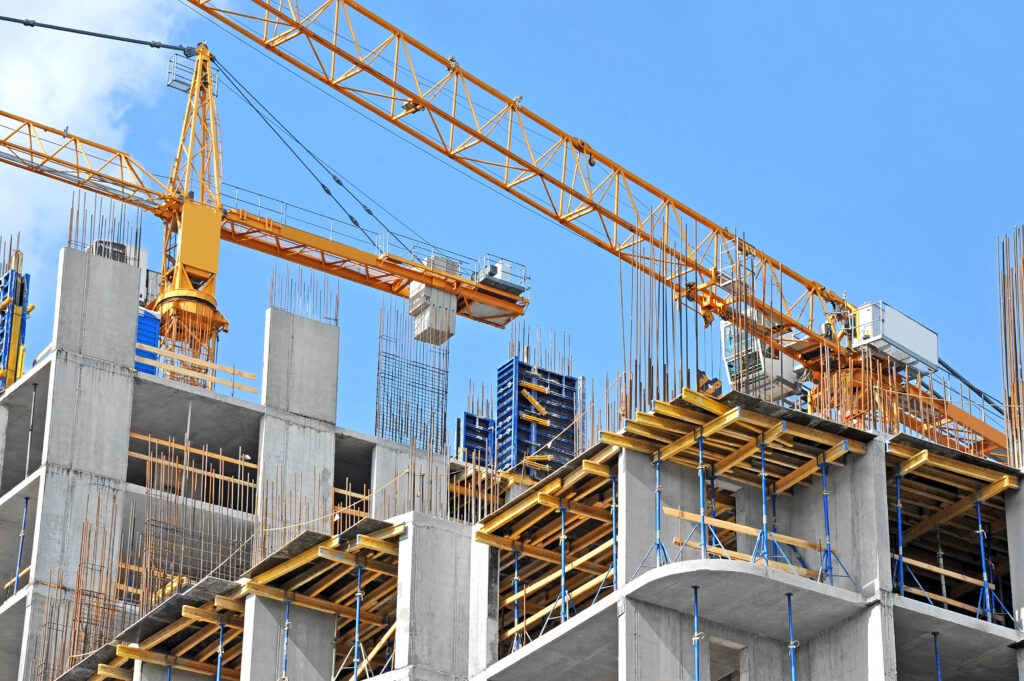Construction Dispute Lawyers
Our team of Commercial Dispute lawyers are very experienced when dealing with a range of property disputes between landlords and tenants.
Disputes frequently arise in construction projects and can be difficult and costly to navigate. Successfully resolving or avoiding disputes is crucial to concluding projects on time and within budget.
We act for Housebuilders, Landowners, main contractors, sub-contractors, funders and professional advisors on all types of disputes and disagreements arising out of the construction and building industry.
Whether you require an early assessment of your construction contract, to advise you on the merits of any potential claim or if you are on the receiving end of a construction claim, our experts will tailor their approach to suit your needs and aims.
We can help you with:
- Payment disputes regarding construction contracts
- LADs, late or defective construction work
- Disputes relating to defective works/remedial works
- Disputes relating to interim and final accounts, including extension of time and delay claims
- Professional negligence claims against architects, construction companies and project managers
- Retentions
- Termination and/or variation of construction contracts
- Reviewing construction contracts before entering into any agreements
Our team will deliver solutions in a clear, cost-effective, and strategic manner, always taking into account the wider commercial considerations which impact your business day to day.
Key Contact

<script>
document.addEventListener('DOMContentLoaded', function () {
const deptEl = document.getElementById('acf-author-department');
const department = deptEl?.dataset?.department;
if (typeof gtag === 'function' && department) {
gtag('set', { author_department: department });
}
});
window.dataLayer = window.dataLayer || [];
const dept = document.getElementById("author-department")?.textContent?.trim();
if (dept) {
window.dataLayer.push({
event: "authorDataReady",
author_department: dept
});
}
</script>Insights
Unlock valuable insights from our articles
Analysis
Case Study: Streamlining Operations
Learn how we improved efficiency our client

John Doe
24 May 2023
.
5 min read
Analysis
Case Study: Streamlining Operations
Learn how we improved efficiency our client

John Doe
24 May 2023
.
5 min read
Analysis
Case Study: Streamlining Operations
Learn how we improved efficiency our client

John Doe
24 May 2023
.
5 min read
Analysis
Case Study: Streamlining Operations
Learn how we improved efficiency our client

John Doe
24 May 2023
.
5 min read
Analysis
Case Study: Streamlining Operations
Learn how we improved efficiency our client

John Doe
24 May 2023
.
5 min read
Analysis
Case Study: Streamlining Operations
Learn how we improved efficiency our client

John Doe
24 May 2023
.
5 min read

Clause for Concern: Are Dispute Resolution Clauses legally binding within a construction contract?
Dispute resolution clauses are contractual provisions that set out the process the parties must or may follow from the point…
Hey there WhatsApp! The building blocks of a valid construction contract: a recent Court ruling
In the recent case of Jaevee Homes Limited (“Jaevee”) v Mr Steve Fincham (t/a Fincham Demolition) (“Fincham”) [2025] EWHC 942…
Retentions in construction – retention or tension?
Retentions have long been a staple of construction contracts, providing employers with security to ensure performance compliance and defect rectification.…
Meet our experts
Dedicated professionals ready to assist you.
Frequently Asked Questions
Find answers to your most pressing questions about our services and processes.
I have no formal written construction contract, can I still make a claim?
It is a common misunderstanding that a contract must be on paper and signed between the parties to be binding. An unsigned contract or the absence of a contract completely does not mean that there is no contract in place and that the parties are potentially bound by what was agreed upon by the parties. A written contract provides better evidence of the parties’ agreement, but contractual obligations can arise in other ways. If you require any advice on whether you have a contract or wish to claim against a party when there is or is not a formal contract in place, we would be happy to assist you.
Do I have a construction contract?
What constitutes a construction contract may surprise many, as there are numerous contracts which may not be an obvious construction contract but will be classed as one.
The definition of a construction contract is contained in section 104 of the Construction Act and states that a construction contract is “an agreement with a person for any of the following:
- The carrying out of construction operations
- Arranging for the carrying out of construction operations by others, and
- Providing labour, or the labour of others, to carry out construction operations”.
- Whilst this may appear to be an easy application, this definition can also include architectural, design or surveying work. It also applies to contracts involving engineering, decoration, and landscaping works.
The Construction Act goes further to define what “construction operations” (as set out in section 104 above) are. Section 105 of the Construction Act provides a rather wide definition of “construction operations” which includes:- The construction, alteration, repair, maintenance and demolition of buildings and structures.
- This is not limited to buildings but also includes works which form part of the land, such as walls, roads, power lines, phone masts, runways, docks, harbours, industrial plants, land drainage and coastal protection.
- Internal works such as the fit out, installation of heating, mechanical and electrical systems, fire protection, security, and communications systems.
- The definition of a construction contract under the Construction Act even goes so far as to include cleaning (in the context of construction), decoration, painting, excavation works and site clearance.
It is worth noting that there are some contracts which are expressly excluded, such as:- Those which include drilling for or extraction of oil/gas, extraction of minerals, some works where the purpose is to assist in nuclear processing, power generation, water effluent and the production/processing or storage of chemicals, pharmaceuticals, oil, gas, steel or food and drink
- Contracts for residential occupiers, e.g., a house extension where the homeowner occupies the main house
- Contracts lasting less than 45 days
Do I have to have a construction contract?
Since 2009, the requirement for a construction contract to be in writing has been removed, provided all other requirements under the Construction Act were met. However, a written contract is always preferable. A written contract gives the parties more certainty on the terms which govern their relationship. It is also common for parties to discover that their position differs on certain issues, and the negotiation of the contract terms helps to minimise the possibility of a future dispute.
Why is it important to know if you have a construction contract?
It is important to understand your legal position under the contract.
What happens if you incorrectly assume you have a construction contract? This means that the statutory protections do not apply to you. As an example, parties only have a mandatory right to adjudicate if the relevant contract is a ‘construction contract’. If a party starts the adjudication process and the relevant contract is not a ‘construction contract’, this means that the other side could contest the adjudicator’s right to determine the underlying issues and the dispute itself.
What happens if you incorrectly assume you do not have a construction contract? Payment disputes are probably the most common type of dispute in the construction industry. Parties therefore need to understand their obligations and rights relating to payment dates, Payment Notices, and Pay Less Notices. Falling foul of any obligation imposed by the contract or the Construction Act can have severe legal and financial consequences.
Many disputes have arisen because one or both parties did not fully appreciate the applicability of the Construction Act to their contract.
What is a JCT contract?
These are a suite of “off the shelf” contracts which have been created and approved by the Joint Contracts Tribunal for use in the construction industry. These contracts can save time and minimise cost when looking to enter into a construction contract; however, when looking for flexibility and a more unique contract, these will not be appropriate. We would be pleased to advise you on the appropriate contract for your project and what the terms of any particular JCT contract mean.
What court deals with construction disputes?
Construction disputes are dealt with by the Technology and Construction Court (TCC). Adjudication, arbitration and mediation are other forms of dispute resolution processes in the construction industry. We would be pleased to advise you on any dispute you may have in the construction field.



